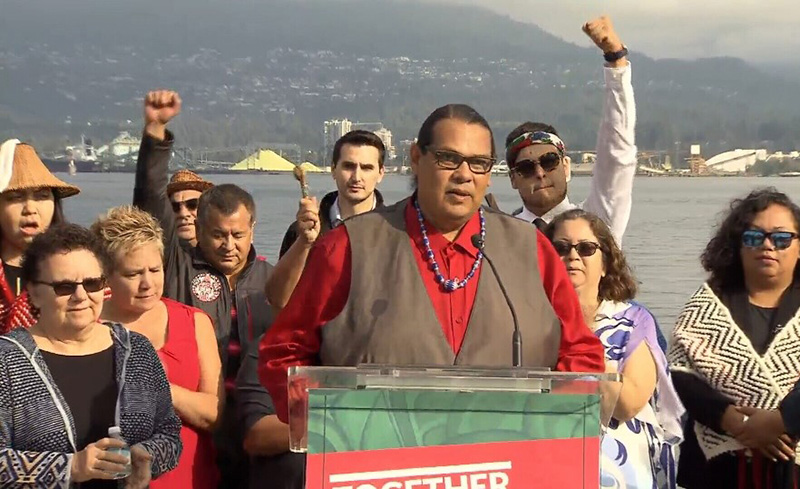At the TMX Pipeline Hearing, the Sham of ‘Consultation’ Laid Bare
Canada ‘barged ahead’ with what ‘cannot be in the public interest,’ argue First Nations.

Those nations oppose the approval of TMX, as do several others, including the Coldwater Indian Band, located inland just south of the town of Merritt. The Coldwater’s opposition stems from a threat to an aquifer which is the main source of its members’ drinking water. (The band’s complaints were documented extensively by The Tyee in October.)
In Courtroom 601 of Canada’s Federal Court of Appeal in downtown Vancouver this week, three judges presided over a judicial review of the decision by the Trudeau government in June to approve the pipeline.
Before them were 27 black-robed lawyers (and a few more in civilian clothing) who outnumbered the peasantry in the packed courtroom (an overflow crowd watched a patchy video stream in a room two floors above).
The lawyers lined up on either side of a chasm that continues to exist between a national government that is impossibly conflicted by its position as both owner and regulator of the pipeline, and Indigenous peoples for whom that same government has fiduciary and constitutional obligations.
It is a chasm made wider by the fact that many First Nations simply don’t agree with Canada’s interpretation of what constitutes the “national interest” — TMX being Exhibit A.
Put simply, Canada chose in June to give regulatory approvals to a project it owns, having satisfied itself that its consultation with First Nations was good enough — even though several of them claim the government flat out ignored their issues, again, and even tampered with peer-reviewed science that supported their concerns about the environmental risks posed by TMX.
…click on the above link to read the rest of the article…